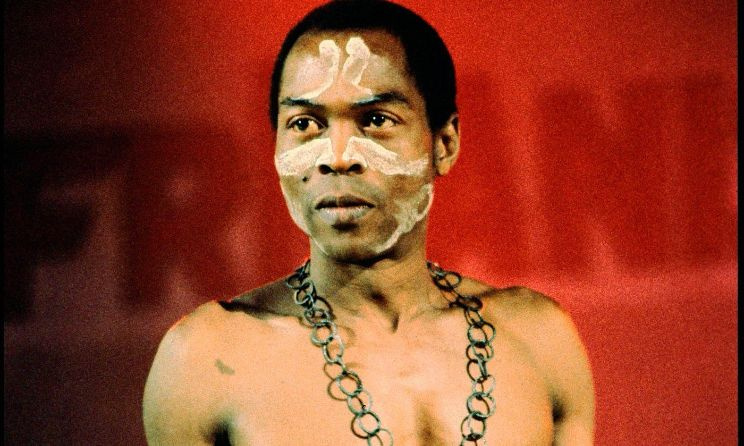Top 3 Albums by Fela Kuti

Fela Kuti, the Nigerian musician, composer, and pioneer of Afrobeat, left a significant legacy in the world of music. His unique blend of traditional African rhythms, jazz, funk, and political commentary created a revolutionary sound that still resonates today. Here’s a look at three of Fela Kuti’s most iconic albums:
1. “Zombie” (1976)
“Zombie” stands out as one of Fela Kuti’s most powerful and controversial albums. Released in 1976, it became a landmark for its sharp criticism of Nigeria’s military regime. The album features two tracks, “Zombie” and “Mister Follow Follow,” each characterized by Fela’s signature Afrobeat rhythms—tight brass sections, pulsating bass lines, and driving percussion.
Notable Features:
- The title track, “Zombie,” metaphorically criticizes Nigerian soldiers, comparing them to mindless “zombies” who follow orders without question.
- Fela’s lyrics, sung in Pidgin English, were both accessible and biting, making the album popular among everyday Nigerians.
- The album’s release led to a government backlash, including a raid on Fela’s commune, Kalakuta Republic.
Impact:
“Zombie” became an anthem of resistance in Nigeria, reinforcing Fela Kuti’s status as a political dissident and musical icon. Its influence extended beyond Africa, inspiring musicians and activists worldwide.
2. “Expensive Shit” (1975)
Released in 1975, “Expensive Shit” captures Fela Kuti’s skill as a storyteller and his fearless approach to social critique. The album contains two tracks, “Expensive Shit” and “Water No Get Enemy,” each reflecting Fela’s keen eye on corruption and the socio-political environment in Nigeria.
Notable Features:
- “Expensive Shit” tells the story of Fela’s real-life run-in with the Nigerian authorities. The police tried to arrest him on drug charges, but he swallowed the evidence. They detained him until they got the proof, but Fela outsmarted them by switching his stool with someone else’s—leading to the legendary “Expensive Shit.”
- “Water No Get Enemy” is a soulful, mellow track with a laid-back groove. The song’s lyrics emphasize the essential and indiscriminate nature of water, subtly symbolizing unity and the idea that no one can resist the truth.
Impact:
This album solidified Fela’s reputation as a fearless critic of corruption and social injustice, with “Water No Get Enemy” becoming one of his most beloved and enduring songs.
3. “Coffin for Head of State” (1981)
“Coffin for Head of State” is a powerful, emotionally charged album released in 1981. It reflects a period of deep personal and political turmoil for Fela, particularly after the tragic death of his mother, Funmilayo Ransome-Kuti, who was thrown from a window during a raid on Fela’s compound by Nigerian soldiers.
Notable Features:
- The title track is a searing 22-minute piece, documenting the events leading to his mother’s death and the aftermath. The song speaks directly to the Nigerian government, accusing them of negligence and brutality.
- The music combines Afrobeat’s typical funky grooves and brass riffs with a deep sense of mourning and righteous anger.
- Fela, along with his followers, delivered a symbolic coffin to the steps of Nigeria’s military leaders, using it as a form of protest—a story captured in the album.
Impact:
“Coffin for Head of State” is often seen as Fela Kuti’s most personal and intense political statement, exposing the harsh realities of Nigerian society at the time. It stands as a testament to his resilience and unwavering commitment to speaking out against injustice.
Fela Kuti’s Lasting Legacy
These three albums—”Zombie,” “Expensive Shit,” and “Coffin for Head of State”—not only highlight Fela Kuti’s musical genius but also his role as a fearless advocate for the oppressed. His work went beyond entertainment; it was a form of resistance, a call for justice, and an exploration of the African identity. Through his pioneering Afrobeat sound, Fela Kuti remains an enduring symbol of musical innovation and social activism.




